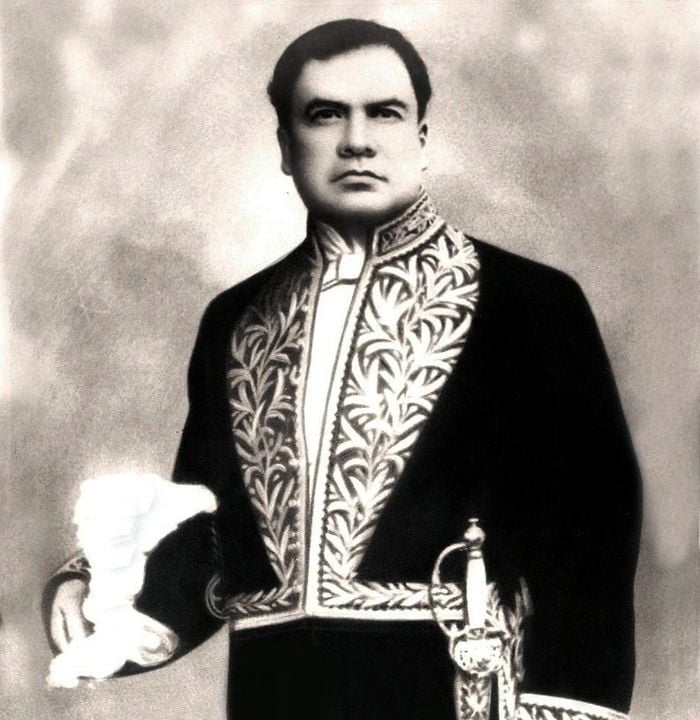Nicaragua
Ruben Dario (1867-1916)
Ruben Dario is one of the few Spanish-American writers who have won international celebrity. He first became known as a boy poet, but soon after his sensational appearance in the field of literature, he became a journalist. His travels began at an early age. He was in the diplomatic service and represented his country in several cities abroad.
Of a rather melancholy and neurotic temperament, he had none the less an extremely varied and active career, and in spite of his diplomatic and other duties he continued to write. Though he is best known as a poet, he is the author of several short stories and books of travel. His volume of prose tales and poems called Azul (1888) attracted notice in Europe. It is from this collection that The Deaf Satyr is selected. This charming idyll exemplifies Dario`s outstanding qualities of style and literary form.
The present version is translated by Isaac Goldberg especially for this collection and included by his permission.
The Deaf Satyr
There dwelt near Mount Olympus a satyr, and he was the ancient king of his forest. The gods had said to him: “Rejoice, the woods are yours; be a merry rascal, hunt the nymphs and let your flute be heard.” And the satyr took his pleasure.
On a day that father Apollo was playing his divine lyre, the satyr left his dominions, daring to ascend the sacred mount and surprise the long-haired god. Whereupon the god punished him by turning him as deaf as a rock. In vain from the denseness of the forest filled with birds poured trills and sounded gentle cooing. The satyr heard nothing.
Philomel, over his tangled hair that was crowned with vine shoots, sang songs that halted the streams in their course and turned the pale roses a blushing red. He remained impassive or howled with savage laughter, leaping in joyous wantonness when, through the openings of the branches, he espied a white round hip that the sun was caressing with its golden light. The animals fawned upon him as a master to be obeyed.
Before his eyes, to divert him danced choruses of bacchantes aflame with their mad fever; close by him, providing the musical accompaniment, were the adolescent fauns, beautiful youths, who caressed him reverently with their smiles; and though he heard no voice, nor the sound of the castanets, he found pleasure after his own fashion. Thus did this bearded king with the goatish feet pass his days.
Read More about Bruin The Bear And Reynard part 2








